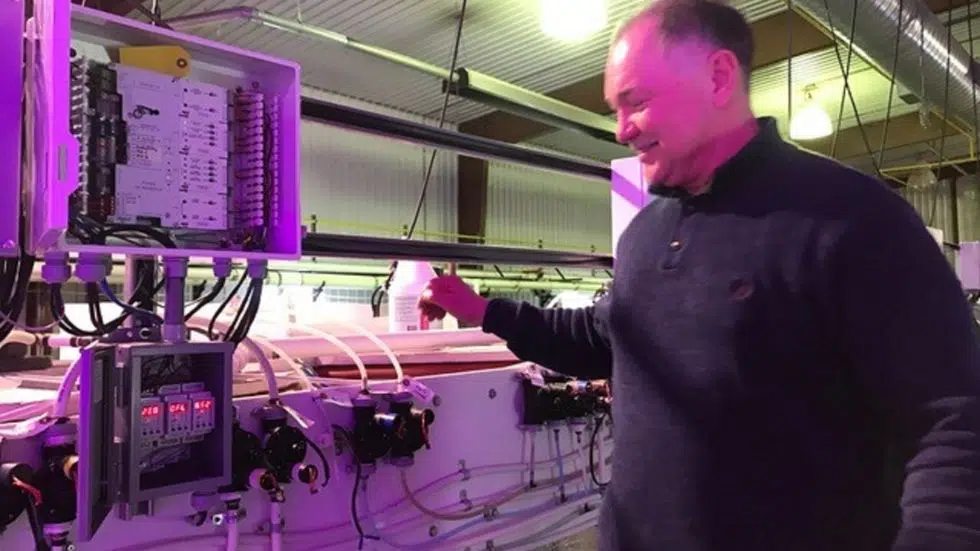
Lethbridge College senior research scientist hopes to revolutionize greenhouse and farming practices
LETHBRIDGE — The first thing you notice when you walk into the Lethbridge College Aquaponics building is the humid, warm air. It feels more like you’re in a tropical garden, than in the middle of the snowy, cold prairies.
There are thousands of Tilapia being raised here in a variety of tanks, and their waste is being turned into a completely non-toxic, clear, concentrated fertilizer to grow a variety of plants.
And it doesn’t smell at all.
This is a world-class facility being run by Senior Research Scientist Nick Savidov, who has dedicated his life to changing the way we think about gardening and farming.
